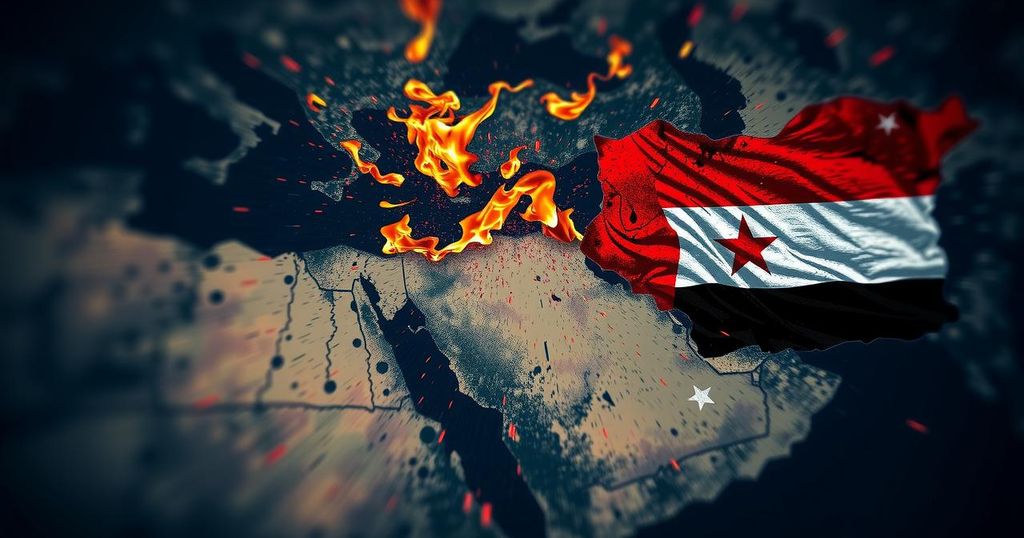Hezbollah leader Hassan Nasrallah has been killed in an Israeli airstrike, which presents a serious blow to the group and raises major strategic questions about Israel’s next actions, particularly concerning Iran. This incident leads to intensified military operations against Hezbollah and reflects a broader escalation of conflicts in the region, including Gaza, the West Bank, and Yemen, amid declining U.S. global influence.
In a shocking escalation, Israel has killed Hassan Nasrallah, the leader of Hezbollah, through a precisely targeted airstrike employing advanced bunker-busting munitions. This incident inflicts a considerable defeat upon Hezbollah, an organization closely aligned with Iran, prompting speculations regarding Israel’s subsequent strategic maneuvers, particularly in relation to Iran’s influence in the region. The ongoing Israeli military campaign against Hezbollah seems to intensify, with Prime Minister Benjamin Netanyahu firmly rejecting any calls for a ceasefire and directly addressing Iranian officials with stern warnings. Expert analysis by Rohan Gunaratna highlights the rapidly shifting geopolitical dynamics resulting from this incident, with implications extending across various conflict zones, including Gaza, the West Bank, and Yemen. This episode of Statecraft explores Israel’s multifaceted confrontations, revealing a nation grappling with complex security challenges that demand an agile and responsive military strategy. Additionally, it touches upon the broader ramifications for U.S. influence in the region, as the superpower faces an ongoing decline in its global standing. The documentary further examines the implications of the clashes in West Asia, including the persistent tensions between Israel and Hamas, and the interconnected conflicts involving Iran and its allied forces, like the Houthis in Yemen, shaping a chaotic landscape within global geopolitical spheres.
The recent assassination of Hassan Nasrallah by Israeli forces represents a pivotal moment in Middle Eastern geopolitics. As the leader of Hezbollah, an Iranian-supported militant group operating in Lebanon, Nasrallah’s death threatens to disrupt the operational capabilities of Hezbollah, which has been a significant player in various regional conflicts, particularly against Israel. This incident not only heightens tensions between Israel and Iran but also raises concerns regarding the potential for an expanded conflict involving other militant factions in the region.
Hassan Nasrallah’s death at the hands of Israeli forces marks a critical juncture for Hezbollah and potentially alters the strategic landscape of the Middle East. As tensions escalate, the Israeli government appears poised to intensify military operations against Hezbollah and respond decisively to Iran’s alignment with militant groups across the region. Through expert analysis and understanding of the unfolding crisis, it is evident that the ramifications of this event will shape future conflicts in West Asia significantly.
Original Source: www.indiatoday.in






